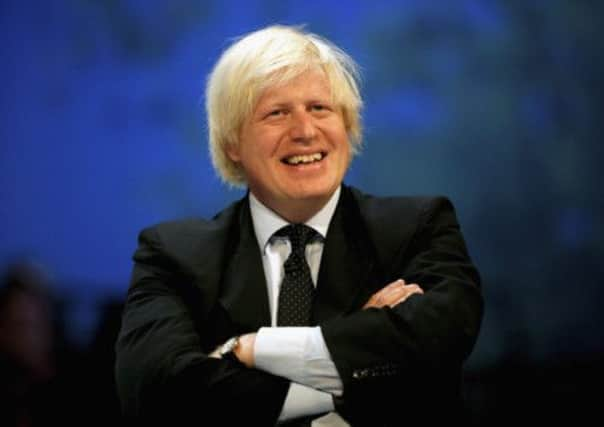David Maddox: Boris Johnson speech could earn votes


But in the last week stupidity has come back to the fore in Tory politics with London mayor Boris Johnson using the annual Thatcher lecture to suggest that equality cannot exist because, frankly, some people are too thick to get ahead in life.
“As many as 16 per cent of our species have an IQ below 85, while about 2 per cent have an IQ above 130,” he said in a speech which has genuinely horrified his party leadership.
Advertisement
Hide AdAdvertisement
Hide Ad“I will let Boris speak for himself,” said Prime Minister David Cameron pointedly, when asked if the London mayor’s comments represent Conservative policy.
Chancellor George Osborne noted that while there was agreement “equality of outcome” cannot be achieved “you should be able to achieve equality of opportunity wherever you come from”.
The reason for the rapid distancing of the leadership from Johnson is far more than a chance to get at the man who barely bothers to hide his ambition to replace Mr Cameron as party leader in a contest many believe would involve Mr Osborne as his main rival. The comments went to the heart of what the Tory leadership fears most about its public image.
They can cope with being described as “stupid”. What they struggle to deal with is the claim that they are elitist and represent the privileged few.
Boris’s speech gave opponents the ideal opportunity to argue that it was “the same old Tories” representing a small elite. It is an easy claim to make. Cameron, Johnson and Osborne are all old Etonians and former members of the infamous Bullingdon Club, of which only the rich and well-connected are asked to apply. Interestingly, Boris Johnson is now expected by many to stand in the seat being vacated in 2015 by the chief whip Sir George Young, another old Etonian.
As a result of this and that “nasty party” tag, Cameron has spent a lot of time and effort in trying to make his party anti-elitist as part of the detoxification process.
Most of all in England this meant dropping a pledge to bring back grammar schools which largely decided people’s fate at age 11, based on their IQ. The decision to do that remains deeply unpopular among many Tories and this is where Boris was making a bid for future support in a leadership contest.
While Boris is part of the Etonian elite, he has somehow succeeded better than the others in widening his appeal and image. And last week he was offering the alternative to the Cameron model of detoxifiying the party which has been seen by many within the Tories as anti-middle class, meritocratic elitism and supporting the elitism of wealth and privilege, something that Labour and Ukip have both played on.